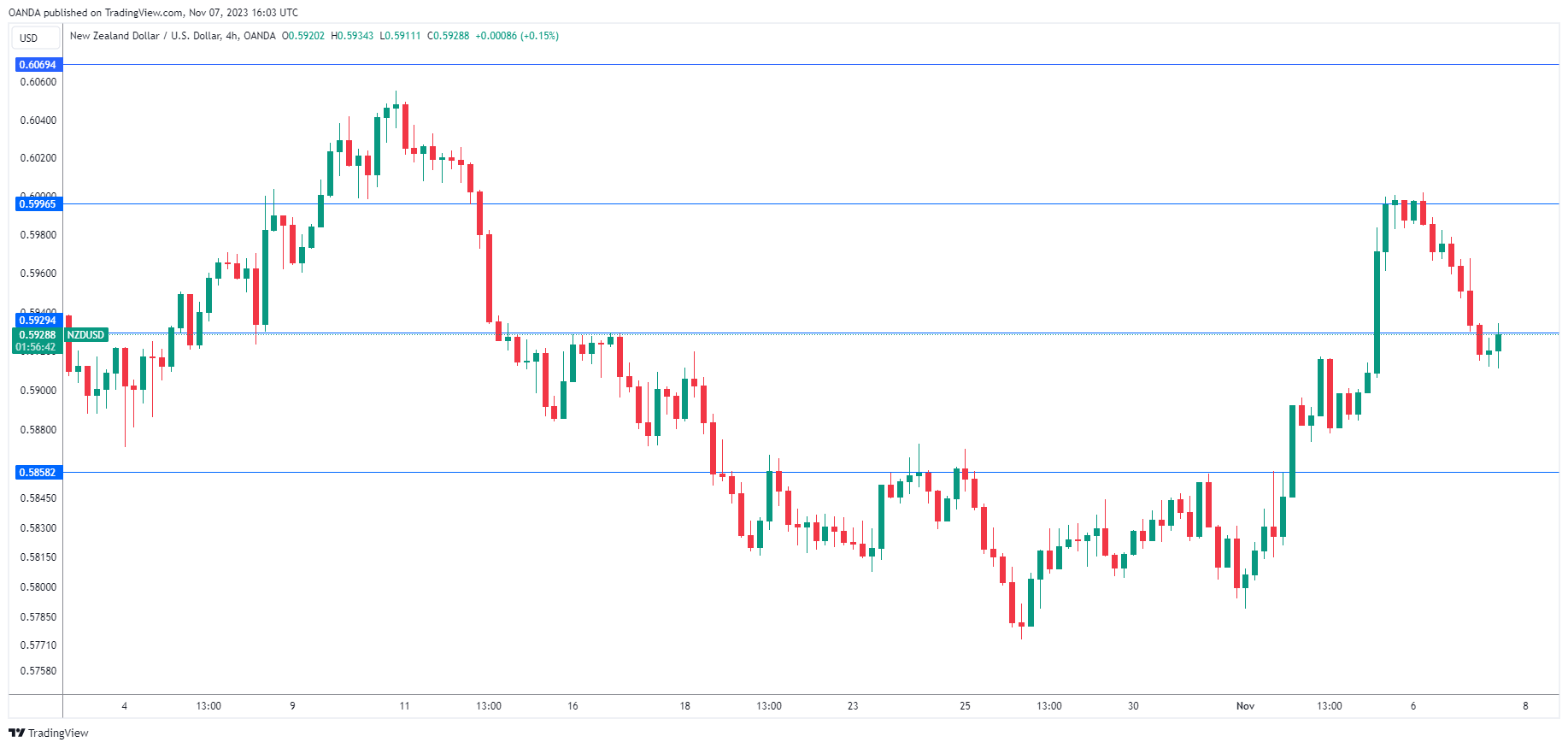- New Zealand dollar sharply lower
- RBA raises rates but the Australian dollar slides
- Chinese exports decline
The New Zealand dollar is down sharply on Tuesday. In the North American session, NZD/USD is trading at 0.5927, down 0.61%. It has been a roller-coaster ride for the New Zealand currency, which continues to swing wildly. Last week, NZD/USD surged 3.24%, its best weekly performance since October 2022. This week has been all red for the New Zealand dollar, which has fallen 1.19%.
RBA, China Weigh on New Zealand Dollar
Today’s Reserve Bank of Australia decision sent the Australian dollar reeling and also dragged down the New Zealand dollar, as there is a strong correlation between the two trans-Tasman currencies.
The Australian dollar is down 1.16% against its US counterpart, despite the RBA raising rates by a quarter point to 4.35%. The language in the RBA statement was somewhat dovish, stating that the rate hike was meant to ensure that “inflation would return to target in a reasonable timeframe.” This signaled an easing of the RBA’s tightening basis and raised expectations that the RBA may have completed its tightening cycle or is very close to that stage.
The RBA statement included the usual rhetoric that future rate decisions would be data-dependent and rate hikes were still on the table, but the markets jumped on the dovish language and ignored the rate increase, which follows four straight pauses. The strong market reaction suggests that the investors believe that the RBA is unlikely to raise rates even though inflation remains well above the 2%-3% target range and inflation expectations have been stubbornly high.
The New Zealand dollar also lost ground due to mixed Chinese data. Imports rebounded in October with a gain of 3.0% y/y following a 6.2% decline in September and beating the market consensus of -4.8%. However, exports fell 6.4% after a 6.2% decline in September and missed the market consensus of -3.3%. This marked a sixth successive decline, indicative of continuing weak global demand for Chinese goods.
New Zealand releases Inflation Expectations for the fourth quarter on Wednesday. The market consensus stands at 2.60%, after a 2.79% gain in Q3. An unexpected reading could have a sharp impact on the movement of the New Zealand dollar.
NZD/USD Technical
- NZD/USD is testing support at 0.5929. The next support line is 0.5858
- There is resistance at 0.5996 and 0.6069
